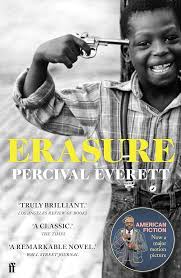I haven’t seen this literary satire, Cord Jefferson’s debut film, based on a 2001 book by Percival Everett, but I was fully intending to until I saw the trailer. It put me off.
Judging a film by its trailer is a bit like judging a book by its cover, but you can in fact tell a lot from a book’s cover, which American Fiction may well have something to say about (I wouldn’t know).
Trailers are often damned for giving too much away, but in these days of massively proliferating content, it’s nice to have a permission to shrug off another cultural obligation, even if this obligation is self-imposed.
Which is to say that a trailer that puts you off seeing the film is not necessarily a ‘bad’ trailer. On the contrary, it could be doing its job (too) well.
The trailer I saw started off OK, introducing the protagonist, a writer called Monk (Jeffrey Wright), and his family, who include an angry gay brother and an unsupportive mother (who tells him he looks fat).
We then get an in-car conversation between Monk and – I don’t know, is it his sister? – wherein she says that one of his books ‘changed her life’ – because it fits perfectly under a wobbly table leg. An old joke, but it works because it’s delivered with a combination of knowingness and warmth. At this point I am still intending to see the film.
But now we reach the crux of the matter: Monk is being told that the book he has written is ‘not black enough’. Then we see him walking into a reading of a book called We’s Lives In Da Ghetto – as he does so, his image is suddenly eclipsed by a woman standing up to applaud a cliche-ridden exchange from the book – a white woman with white hair.
Had she been wearing a bridal gown the implication could hardly be any clearer – black writers are being encouraged to, as it were, pimp a hackneyed version of their blackness out to a white audience with an appetite for stereotypical depictions of black life (poverty, crime).
Our hero decides to ‘rub their noses in it’ by delivering a pastiche of this trend with a book entitled My Pathology – no, sorry: My Pafology – and although it is conceived as a joke it proves to be a huge success, encouraging him to adopt a criminal persona which eventually gets him into real trouble.
This is laid out so clearly in the trailer that it is like having a joke laboriously explained to you – another old joke really, recalling the intentional miss that proves to be a big hit in The Producers. So fawning publishers gush over how ‘black’ the book is and the sarcastic author says: ‘White people on the Hamptons will delight in it’. Which elicits the response: ‘Yes, we will’.
Don’t ‘white people on the Hamptons’ go to the cinema though? What must they be thinking?*
Indeed, what about the white audience for this film, of which I am potentially one? Are we really any different from the audience for We’s Lives in Da Ghetto? Aside from believing that, unlike those ‘white people on the Hamptons’, we are privy to an ‘authentic’ black experience – we are ‘in on the joke’. But can we ever be?
Or perhaps the trailer is entirely aware of this, and using my need to feel that I have a better understanding of the black experience than those other dumb white folks to lure me into seeing a film that is far more complex and challenging than it initially appears. In which case, having seen through this ruse, maybe I don’t need to see the film… I mean, if the white audience is the problem, why add to it?
Hmm, this is proving to be a thought-provoking trailer. When maybe the only thought it should be provoking is: ‘I want to see this film.’
In this case it has had the opposite effect. Although I am concerned by all the excerpts from rave reviews the trailer is throwing at me (at least I assume they are rave reviews, there are too many to read). Am I isolating myself from the Zeitgeist? Or could this response from (white?) critics be a form of mass hysteria, generated by the very liberal guilt the film is sending up?
I mean, I very much doubt that this film is ‘bad’, but the trailer leaves me with the impression of a one-joke film whose one joke has already been done to death before it has even started. Maybe it’s a false impression, maybe I’m just being cranky. But there are so many films nowadays, and so little time…
However, now that I have gone to the trouble of writing this, I may well end up going to see American Fiction just to see if I was ‘right’ or not (not, of course, that right and wrong have anything to do with it). And then no doubt I will spend the entire film writhing in a paroxysm of shame as I realise that it is indeed, as the trailer quotes, ‘a goddamned masterpiece’.
Nevertheless: you have to draw the line somewhere. Who is to say that my appreciation of the film proper wouldn’t be just as wrongheaded as this? But I think I should read the book first. Even with ‘Now a major motion picture’ stamped on it, the cover looks OK.
*What if this white audience lived in trailer parks rather than the Hamptons – wouldn’t that make this less of an easy sell?


Recent Comments